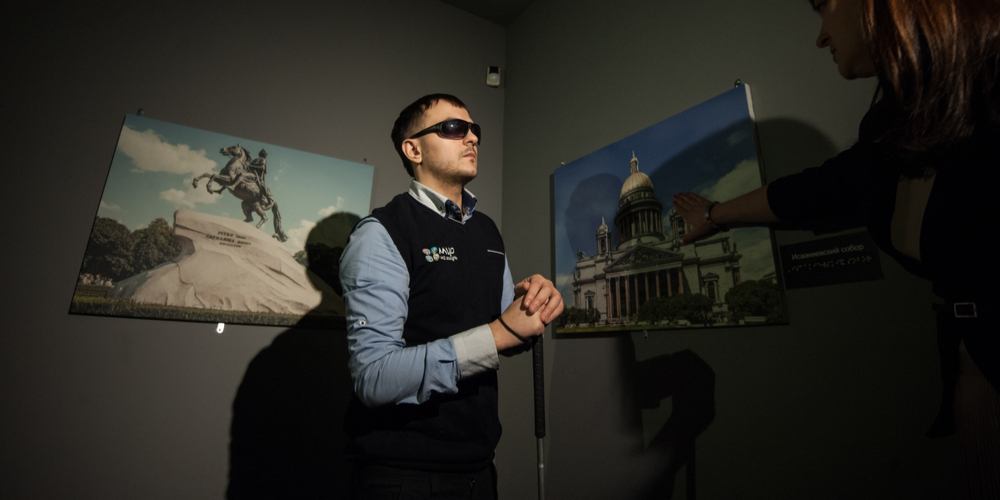
New initiatives have been developed over the past few years that broaden the scope of disabled access for people with a variety of needs.
Places of interest continue to develop their disabled access in new and exciting ways as a direct result of advances both in law in the form of the Disability Discrimination Act, and the tireless work carried out by a number of charities and organisations supporting multiple varieties of accessibility.
They are committed to extending the availability of aids for many kinds of disability, and a selection of the main charities and developments are explored below.
Visual Impairments
VocalEyes is a charity set up to provide audio description for a range of different events. Audio description is a lively explanation of a piece’s visual aspects. Employing this in galleries and museums increases the independence available for visually impaired visitors, and ensures that they get the same rewarding experience from a venue as people without sight disabilities. VocalEyes are also heavily involved in the theatre, committed to expanding the way in which disabled visitors can enjoy performances. Their website supplies all the relevant details, including an FAQ section and easy-to-use search feature to find local events.
Hearing Impairments
Captioning is used in a growing number of locations, offering accurate description of audio elements. Stagetext endorses and supplies captioning in many venues around the country, focusing on theatre. One of their core values is recognising that people with different hearing abilities require varied forms of access. The goal is to remove any obstacles from the enjoyment of cultural entertainment in the widest possible way.
MAGIC (Museums and Galleries in the Capital) is a London-specific collection of the best galleries and museums that cater for deaf and hard of hearing visitors. Their website is considered a definitive resource for inquiring about a site’s specific access, with an extensive calendar of events, and a list of each member location with relevant information.
Learning disabilities
Symbol systems are now used regularly to provide a relevant and easily understood service for people with learning disabilities. Tactile touch objects and related tours are also usually available.
Scanning pens are particularly useful for people with dyslexia. They are handheld scanners which can often be utilised to electronically read aloud labels and assorted information.
Mobility and severe impairments
Changing Places runs a campaign for the installation of Changing Places toilets in public places, as standard disabled toilets do not meet the requirements of people with certain learning disabilities and also many physical and neurological impairments. Their website includes real life stories and information on relevant action to take.